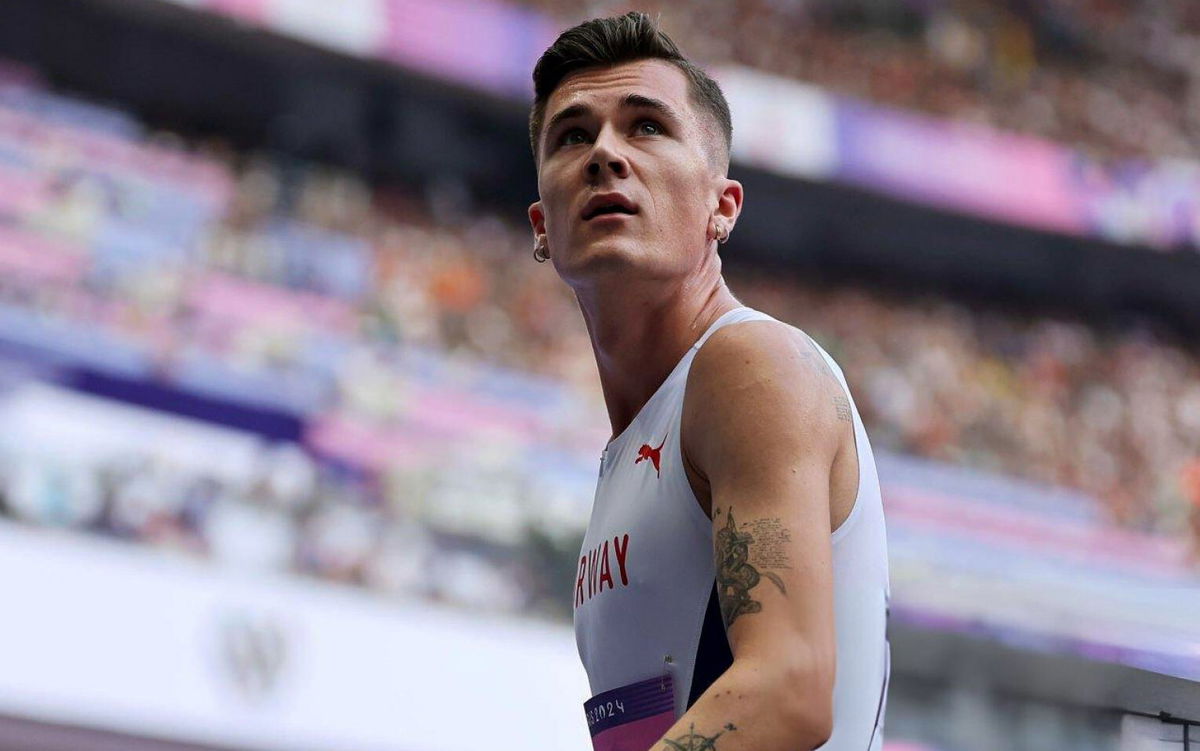
Imago
Credits: Instagram

Imago
Credits: Instagram
Jakob Ingebrigtsen’s return to the track at the World Athletics Championships in Tokyo was always going to be a gamble. The Norwegian star, unbeaten at 5000m in the last two editions of the championships, had not competed all summer after an Achilles injury disrupted his season. His decision to line up in Japan drew intrigue across the sport, but what followed in the 1500m heats proved a sobering reminder of how swiftly fortunes can shift at the highest level. What began as a comeback story quickly turned into a night of disbelief, as the 24-year-old bowed out in the opening round.
Watch What’s Trending Now!
The build-up to Tokyo had been uneasy, as Ingebrigtsen had not raced outdoors all year. He spoke openly of his doubts before arriving in Japan. “I have hope until it really doesn’t work. And as long as there is enough time, there is still hope, even if it is going very badly. Now we are here and doing the best we can, but we don’t know,” he told NRK. His press release the week prior framed the task with stoic resolve: “It may not be optimal to run a World Championships without competitions in the legs, but it just has to be. I’m going to run. This is what I live for. To compete. It can’t be that difficult.”
The difficulty revealed itself on Day 2 of the morning session heats. Ingebrigtsen lined up in the fourth and final heat, requiring a top-six finish to advance. As soon as the gun went off, he was dead last with the pack of runners leading. A few metres in, he tried taking over. But couldn’t. For most of the race, viewers saw him right at the back. And in the bell lap, he was stuck in the inner lane, unable to overtake, leading him to eventually give up and jog to an 8th finish in 3:37.84.
Great Britain’s Jake Wightman, who had denied him world gold in 2022, took the heat in 3:36.90. Portugal’s José Carlos Pinto (3:37.09) and America’s Jonah Koech (3:37.11) also advanced automatically, as did France’s Romain Mornet, Sweden’s Samuel Pihlström, and Ireland’s Andrew Coscoran. The Norwegian crossed the line just behind Morocco’s Anass Essayi, his campaign ending before it began.
Elsewhere, France’s Azeddine Habz, a two-time Diamond League winner in 2025, had already been edged out by eight-hundredths in heat one. By night’s end, three men who rank among the ten fastest in history — Ingebrigtsen, Habz, and Koech — were out before the semifinals.

Reuters
Paris 2024 Olympics – Athletics – Men’s 5000m Final – Stade de France, Saint-Denis, France – August 10, 2024. Jakob Ingebrigtsen of Norway celebrates after winning gold. REUTERS/Sarah Meyssonnier
For Ingebrigtsen, the sight of eighth place marked an unfamiliar position. It was the lowest finish he had recorded in a track race since 2017 (at the Stockholm Diamond League), and it underscored the hazards of returning to elite competition after months of uncertainty. “The biggest challenge in a difficult situation, where there is a lot of uncertainty, is that everything goes back and forth,” he explained earlier in the week. The statement carried prophetic weight.
The defending 5000m world champion remains entered in that event, but Sunday in Tokyo offered a sobering reminder that fitness regained in training camps cannot always bridge the gulf of competition at the highest level. And after the heartbreaking setback, Jakob called his 1500m race “terrible,” admitting disappointment while stressing he feels closer to form in the 5000m.
Jakob Ingebrigtsen admits 1500m exit was “disappointing” but eyes redemption in 5000m
Jakob Ingebrigtsen emerged from the track in Tokyo with a candor that matched the surprise of his performance. And he did not attempt to soften the truth of his experience. “It was terrible,” he said plainly, acknowledging both the disappointment of the result and the reality of his current condition. For an athlete whose career has been built upon precision and consistency, the abrupt exit carried the weight of an unfamiliar setback.
Speaking afterwards, Ingebrigtsen admitted that the effort had left him confronting more than a single defeat. “It’s a first time experience. So it’s of course very disappointing but at the same time a reality check of how bad it is,” he explained, noting that the 1500m demands absolute readiness. While he had prepared with the intention of advancing, the outcome reflected a gap between expectation and capacity. He suggested that his training and present condition may be better aligned with the longer distance, remarking, “I’m probably closer to the 5000m fitness-wise right now.”
The discussion inevitably turned to his health, a subject that has hovered over his season. The Norwegian clarified that his Achilles, the source of his extended absence from racing, had not troubled him during the heat. Yet he framed that detail in stark terms: “My Achilles was not, I didn’t feel it in this race but what does that matter if you’re not feeling good?” The remark reinforced that his challenge lay not in a single injury but in a broader lack of sharpness. Even so, he looked ahead to the 5000m with cautious determination, conceding only that the world championships “are always going to be hard” and that he must begin again to see how far he can go.

